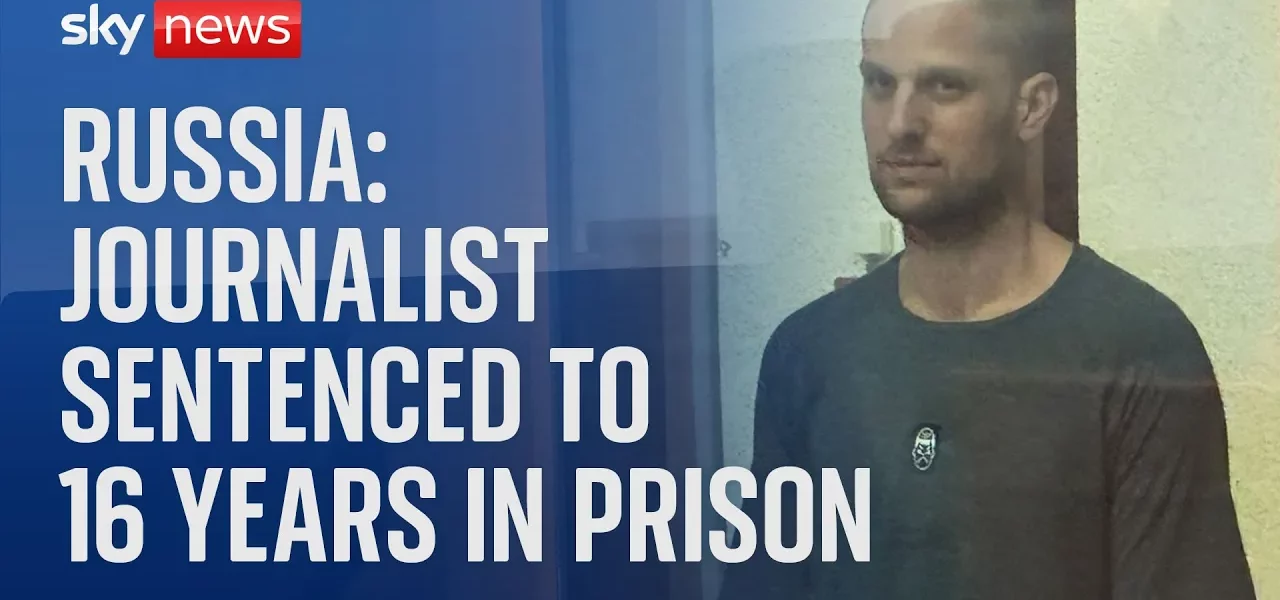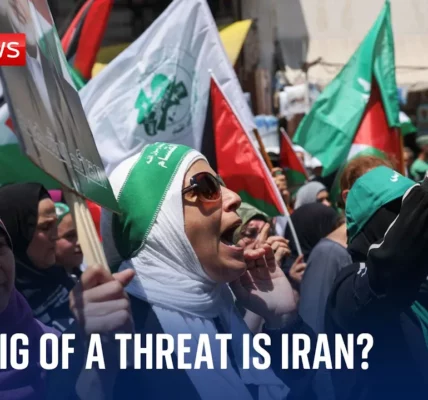Evan Gershkovich Sentenced to 16 Years in Russia: Implications for Journalism and US-Russia Relations
Evan Gershkovich Sentenced to 16 Years in Russia: Implications for Journalism and US-Russia Relations

This article delves into the recent sentencing of Evan Gershkovich, a reporter for the Wall Street Journal, who has been handed a 16-year prison term in Russia. We will explore the context surrounding this case, its implications for journalism, and the broader impact on US-Russia relations.
Introduction
The recent conviction of Evan Gershkovich, an American journalist accused of espionage in Russia, marks a significant moment in the ongoing tensions between the United States and Russia. With a staggering conviction rate of 99% within the Russian legal system, the guilty verdict against Gershkovich was largely anticipated. However, the implications of this case extend far beyond the courtroom, highlighting critical issues surrounding journalistic freedom and international relations. This article will provide a comprehensive examination of the events leading to this moment, the trial itself, and the potential ramifications for journalists operating in Russia and beyond.
The Context of the Conviction
Gershkovich’s conviction comes against the backdrop of deteriorating US-Russia relations, reminiscent of the Cold War era. The last American journalist to face similar charges was Nicholas Daniloff in 1986, who was released after a brief period in custody. In stark contrast, Gershkovich has been sentenced to 16 years, reflecting the current geopolitical climate.
The Arrest and Charges
Evan Gershkovich was arrested in Yekaterinburg, Russia, while on a reporting assignment for the Wall Street Journal. The Russian government has accused him of spying for the CIA, claiming he was gathering sensitive information on a nearby tank factory. However, the evidence supporting these allegations has not been publicly disclosed, raising significant questions about the legitimacy of the charges.
The Trial Process
The trial was characterized by its rapid pace, concluding after only three hearings. The closing arguments were made, and a verdict was rendered within hours, fueling speculation about potential motives behind the brisk proceedings. The trial was held behind closed doors, with no media access, limiting transparency.
Reactions from the Media and Government
The reaction to Gershkovich’s sentencing has been swift and critical, underscoring the implications for press freedom worldwide.
Statements from the Wall Street Journal
The Wall Street Journal has condemned the trial as a “sham,” asserting that Gershkovich was merely performing his duties as a journalist. They emphasize the importance of press freedom and the need for journalists to operate without fear of reprisal.
U.S. Government Response
The U.S. government has echoed these sentiments, calling for the immediate release of Gershkovich. Officials argue that journalism is not a crime and that the charges against him are unfounded. The swift conviction is viewed as a troubling indicator of the risks faced by journalists in authoritarian regimes.
Implications for Journalism and International Relations
The conviction of Evan Gershkovich has far-reaching implications not only for journalism but also for international diplomacy.
The State of Press Freedom in Russia
The case highlights the precarious state of press freedom in Russia, where the government has increasingly cracked down on dissenting voices. Journalists face significant risks when reporting on sensitive topics, and the conviction of Gershkovich serves as a chilling reminder of these dangers.
Potential for a Prisoner Exchange
Speculation surrounding a potential prisoner exchange has emerged, as Russia has historically engaged in such negotiations following legal proceedings. However, Dmitry Peskov, spokesperson for President Vladimir Putin, has remained non-committal, leaving many questions unanswered.
Broader Geopolitical Tensions
This case further exacerbates the already strained relations between Moscow and Washington. The treatment of Gershkovich is likely to influence future diplomatic engagements and may provoke stronger responses from the U.S. government.
Conclusion
The sentencing of Evan Gershkovich to 16 years in a Russian prison is a significant event with far-reaching implications for journalism and international relations. It underscores the challenges faced by journalists operating in hostile environments and highlights the ongoing tensions between the United States and Russia. As the situation evolves, it is crucial for the global community to advocate for press freedom and support those who risk their lives to bring important stories to light. We encourage readers to stay informed about developments in this case and consider the broader implications for freedom of expression worldwide.
“`




